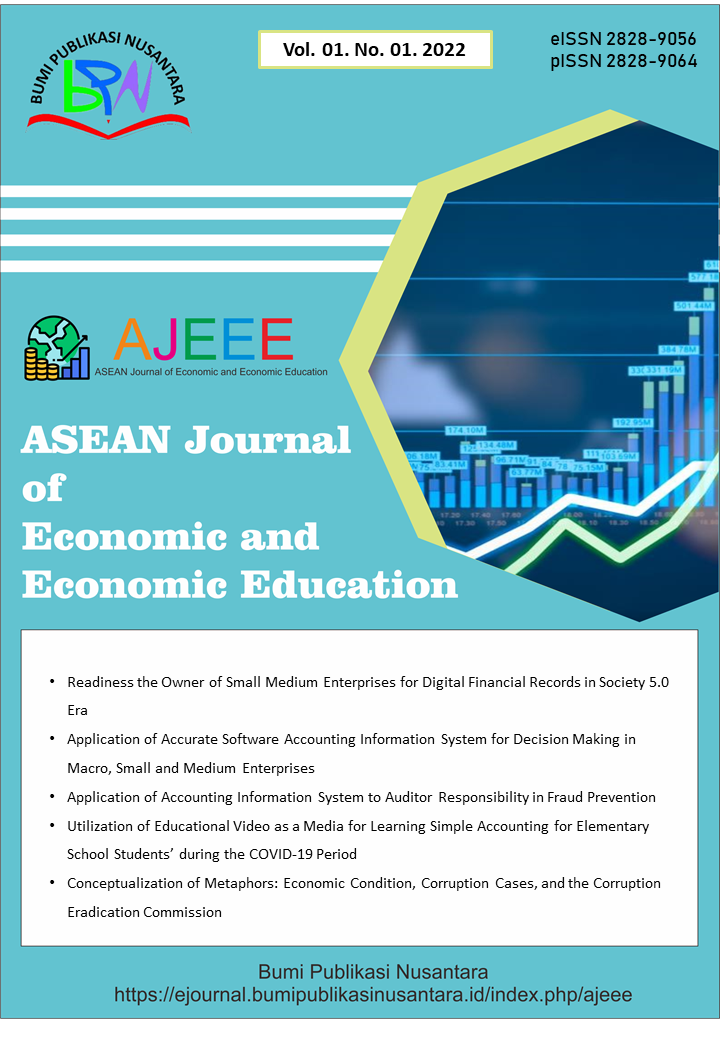Examining the Potential of Sustainability Marketing Adoption on the Performance of Beverages Company
 ), Jibrilla Abubakar(2),
), Jibrilla Abubakar(2),
(1) Modibbo Adama University
(2) Modibbo Adama University
 Corresponding Author
Corresponding Author
Abstract
Keywords
References
Aggarwal, V. K., and Arora, S. (2013). Global brands’ impact of relationship marketing on customer loyalty: An analytical study. Global Journal of Management and Business Studies, 3(8), 843-848.
Akabom I. A., Temitayo D. O., and Raphael, O. U, (2018). The effect of sustainability reporting on corporate performance of selected quoted brewery firms in Nigeria. International Journal of Business and Law Research, 6(3),1-10.
Barnett, M. L. (2007). Stakeholder influence capacity and the variability of financial returns to corporate social responsibility. Academy of Management Review, 32(3), 794-816.
Belz, F. M., and Riediger, B. S. (2010). Marketing strategies in the age of sustainable development: Evidence from the food industry. Business Strategy and the Environment, 19(7), 401-416.
Chamorro, A., and Bañegil, T. M. (2006). Green marketing philosophy: A study of Spanish firms with ecolabels. Corporate Social Responsibility and Environmental Management, 13(1), 11-24.
Freeman, R. E., Phillips, R., and Sisodia, R. (2020). Tensions in stakeholder theory. Business and Society, 59(2), 213-231.
Hair, J. F., Ringle, C. M., and Sarstedt, M. (2013). Partial least squares structural equation modeling: Rigorous applications, better results and higher acceptance. Long Range Planning, 46(2), 1-12.
Hami, N., Muhamad, M. R., and Ebrahim, Z. (2015). The impact of sustainable manufacturing practices and innovation performance on economic sustainability. Procedia Cirp, 26(2015), 190-195.
Hilmi, A. (2016). Effect of social and environmental performance on financial performance of the company. European Journal of Accounting, Auditing and Finance Research, 4(9), 30-59.
Jones, T. M. (1995). Instrumental stakeholder theory: A synthesis of ethics and economics. Academy of Management Review, 20(2), 404-437.
Kim, J., Taylor, C. R., Kim, K. H and Lee, K. H. (2015). Measures of perceived sustainability. Journal of Global Scholars of Marketing Science: Bridging Asia and the World, 25(2), 182-193.
Martinez, P. (2015). Customer loyalty: Exploring its antecedents from a green marketing perspective. International Journal of Contemporary Hospitality Management, 27(5), 896-917.
Preda, P., and Watts, T. (2004). Contemporary accounting innovations in Australia: Manufacturing versus service organisations. Journal of Applied Management Accounting Research, 2(2), 17-28.
Rizaldi, A., Margareta, F., Simehate, K., Hikmah, S. N., Albar, C. N., and Rafdhi, A. A. (2021). Digital marketing as a marketing communication strategy. International Journal of Research and Applied Technology (INJURATECH), 1(1), 61-69.
Robert, S. and Tribe, J. (2008). Sustainability indicators for small tourism enterprises-an exploratory perspective. Journal of Sustainable Tourism, 16(5), 575-594.
Rohmawati, T., and Winata, H. (2021). Information technology for modern marketing. International Journal of Research and Applied Technology (INJURATECH), 1(1), 90-96.
Shaturaev, J. (2022). Company modernization and diversification processes. ASEAN Journal of Economic and Economic Education, 1(1), 47-60.
Sun, Y., Kim, K. H., and Kim, J. (2014). Examining relationships among sustainable orientation, perceived sustainable marketing performance, and customer equity in fast fashion industry. Journal of Global Fashion Marketing, 5(1), 74-86.
Trivedi, K., Trivedi, P., Goswami, V. (2018). Sustainable marketing strategies: Creating business value by meeting consumer expectation. International Journal of Management, Economics and Social Sciences (IJMESS), 7(2), 186-205.
Waddock, S.A. and Graves, S. M. (1997) The corporate social performance-financial performance lik. Strategic Management Journal, 18(4), 303-319.
Article Metrics
Abstract View : 1329 times
: 1329 times Download : 866 times
Download : 866 times
Refbacks
- There are currently no refbacks.
Copyright (c) 2022 Bumi Publikasi Nusantara

This work is licensed under a Creative Commons Attribution-ShareAlike 4.0 International License.



_publication_ethics1.png)



